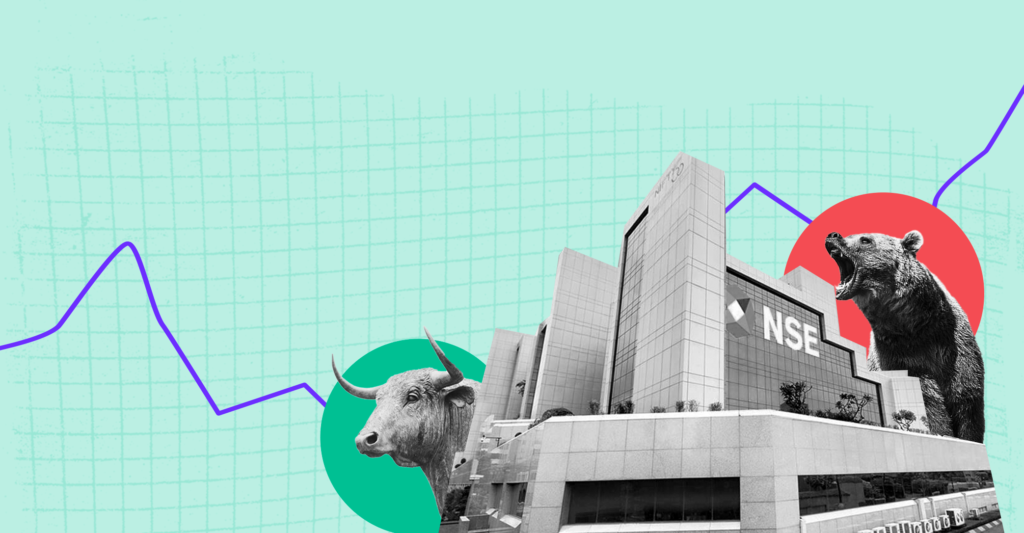Stock Market Vs. Common Sense
In recent weeks, a storm has been brewing in the Indian stock market, drawing attention from investors, politicians, and citizens alike. The controversy stems from high-profile investment advice given by Prime Minister Narendra Modi and Union Home Minister Amit Shah. Their statements, predicting a market surge post-Lok Sabha elections, have sparked calls for a Joint Parliamentary Committee (JPC) investigation. Congress leader Rahul Gandhi has been particularly vocal, labeling the situation the “biggest stock market scam” and raising serious questions about the propriety of such advice.

The crux of the matter lies in the unusual intersection of political influence and market movements. On May 23, Prime Minister Modi confidently forecasted that the stock market would hit new highs following the BJP’s anticipated electoral victory. A few days earlier, on May 13, Amit Shah suggested that investors should buy before June 4, predicting a market uptick. These statements came at a sensitive time, with millions of retail investors looking for direction amidst the volatility.
One must question whether it is appropriate for political leaders to provide specific investment advice. The stock market is inherently unpredictable, driven by a complex mix of economic indicators, investor sentiment, and global events. It is not a platform where political leaders should tread lightly, particularly when millions of livelihoods are at stake. The role of government officials is to create a stable economic environment, not to act as financial advisors.
Furthermore, the media outlets that carried these interviews are owned by a business group currently under investigation by SEBI for stock manipulation. This raises further concerns about the potential conflict of interest and the impartiality of the advice given. Rahul Gandhi’s call for a JPC investigation seeks to uncover whether there was a coordinated effort to manipulate market sentiment and benefit specific investors at the expense of the common retail investor.

The stock market, often seen as a barometer of economic health, should not be swayed by political rhetoric. Instead, it should be guided by sound economic policies and regulatory frameworks that ensure transparency and fairness. The recent events highlight the need for stronger regulatory oversight to prevent market manipulation and protect the interests of ordinary investors.
The larger issue at play is the erosion of common sense in the face of political and financial machinations. Investing in the stock market should be based on thorough analysis and rational decision-making, not on speculative statements from political figures. Retail investors, many of whom are investing their hard-earned savings, deserve better.
As we get into these turbulent waters, it is imperative to restore trust in our financial systems. This can only be achieved through accountability, transparency, and a clear separation between political influence and market operations. The call for a JPC investigation is a step in the right direction, but it must be followed by concrete actions to address any malpractices and reinforce the integrity of our markets.
The controversy unearthed serves as a stark reminder that common sense must prevail in the stock market. Political leaders should focus on governance and policy-making, leaving financial advice to qualified professionals. Only then can we ensure a stable and fair market environment that benefits all investors.
Wave Theory in Stock Market
The stock market, often described as a sea of opportunities and risks, is influenced by various factors, both rational and psychological. One of the most intriguing concepts in understanding market movements is the Wave Theory. Developed by Ralph Nelson Elliott in the 1930s, this theory posits that market prices move in predictable patterns or “waves” driven by investor psychology. According to Elliott, these waves are a result of collective investor sentiment swinging between optimism and pessimism in natural sequences. The theory suggests that markets move in five-wave patterns during bull markets and three-wave patterns during bear markets, creating a framework for forecasting future market movements.
:max_bytes(150000):strip_icc():format(webp)/elliottwavetheory.asp-final-d72156085e9e4bbb92d150520a54283b.jpg)
Wave Theory has gained significant traction among traders and analysts for its ability to offer insights into market trends and turning points. It emphasizes that market behavior, while seemingly chaotic, follows certain fractal patterns that repeat over time. By analyzing these patterns, investors can make more informed decisions about entry and exit points in the market. However, it is important to note that while Wave Theory provides a useful tool for understanding market psychology and trends, it is not foolproof. It should be used in conjunction with other analytical methods and a comprehensive understanding of market fundamentals to maximize its effectiveness in investment strategies.
Artificial Wave Theory in Stock Market
Artificial Wave Theory is an advanced concept that extends the principles of traditional Wave Theory by incorporating modern computational techniques and artificial intelligence. Unlike the original Wave Theory, which relies on manual pattern recognition and historical data analysis, Artificial Wave Theory uses machine learning algorithms to detect and predict wave patterns in the stock market. These algorithms are designed to analyze vast amounts of market data in real-time, identifying subtle and complex patterns that may not be visible to human analysts. By leveraging AI, Artificial Wave Theory aims to enhance the accuracy and reliability of market predictions, offering investors a powerful tool to navigate the uncertainties of the stock market.
The integration of artificial intelligence into wave analysis has the potential to revolutionize trading strategies. AI-driven models can continuously learn and adapt to changing market conditions, improving their predictive capabilities over time. This dynamic approach allows for more responsive and precise forecasting, helping investors to capitalize on emerging trends and mitigate risks more effectively. However, the success of Artificial Wave Theory depends on the quality of the data and the robustness of the algorithms used. As with any technological advancement, it is crucial to combine AI insights with human judgment and market expertise to develop a holistic investment strategy.
Beware of the Manipulators in the Stock Market
The stock market, a platform for economic growth and wealth creation, is not immune to the influence of manipulators who seek to exploit it for personal gain. Market manipulation involves deliberate actions to artificially influence stock prices, creating a false sense of market dynamics. These manipulators use various tactics, such as spreading false information, executing high-frequency trades, or conducting pump-and-dump schemes, to distort market perceptions and induce investors into making misguided decisions. Such activities not only undermine market integrity but also erode investor confidence, leading to significant financial losses for unsuspecting participants.
It is crucial for investors to remain vigilant and informed to protect themselves from market manipulators. Conducting thorough research, relying on credible sources of information, and maintaining a skeptical approach to too-good-to-be-true opportunities are essential practices. Regulatory bodies like the Securities and Exchange Board of India (SEBI) play a vital role in monitoring and penalizing manipulative activities, but individual investors must also exercise caution. Understanding the signs of potential manipulation, such as sudden, unexplained price movements or suspicious trading volumes, can help investors avoid falling prey to these schemes. By fostering a culture of transparency and accountability, both regulators and investors can work together to safeguard the market’s fairness and stability.
Advice for Navigating the Stock Market Safely
Investing in the stock market can be a rewarding way to grow your wealth, but it requires careful planning and a prudent approach. One of the key pieces of advice is to avoid treating the stock market as a gambling platform. Unlike gambling, successful stock market investing relies on informed decision-making, thorough research, and a long-term perspective. It’s essential to invest in well-established companies with solid fundamentals rather than chasing quick profits through speculative trades. By maintaining a disciplined approach and avoiding high-risk bets, you can build a more stable and profitable investment portfolio.

Another crucial strategy is to remain patient during market downturns. Stock market crashes can be alarming, but they are a normal part of market cycles. Historically, the market has always recovered over time. When a crash occurs, avoid the impulse to sell off your investments in a panic. Instead, take a step back, reassess your investment strategy, and consider holding onto your positions or even buying quality stocks at lower prices. Remember, investing in the stock market is a marathon, not a sprint. Staying calm and patient during turbulent times can help you ride out the volatility and ultimately benefit from the market’s long-term growth.





